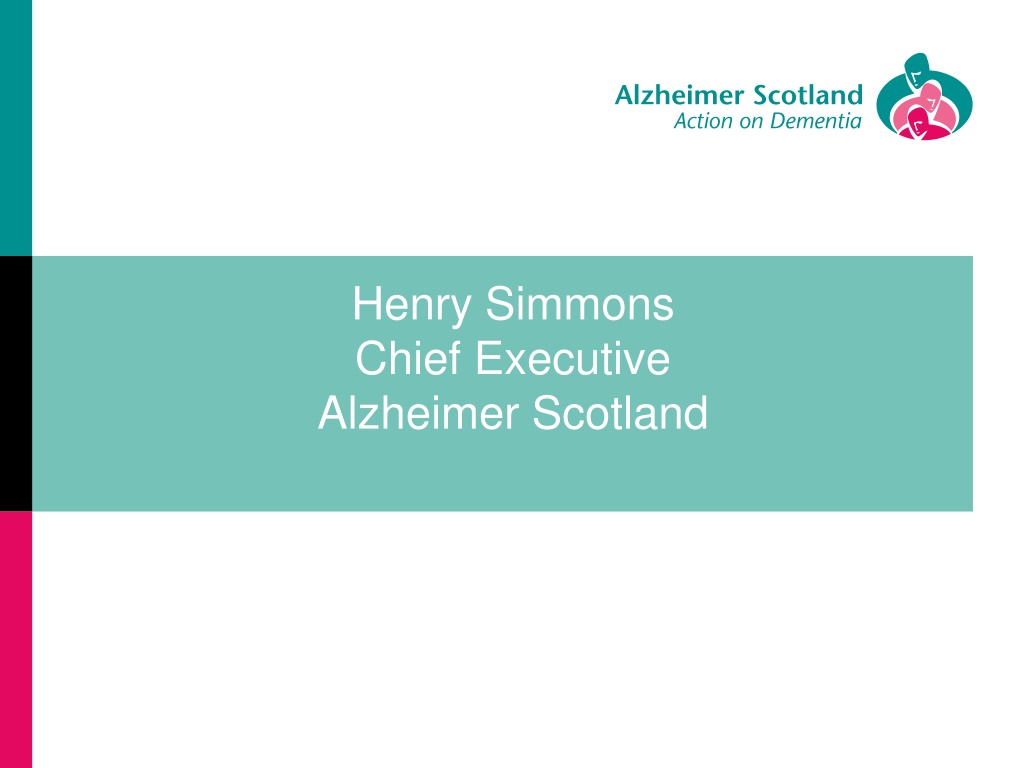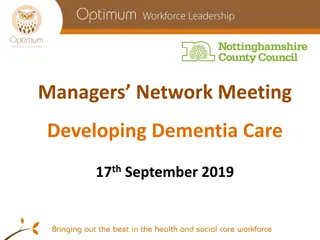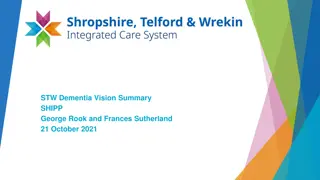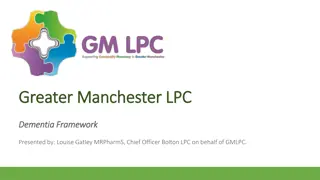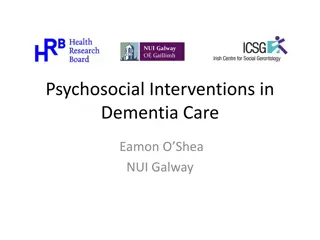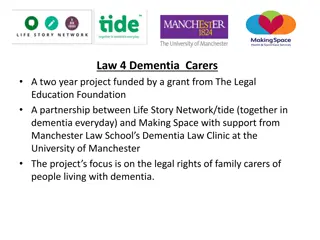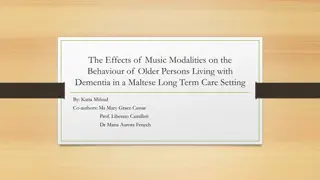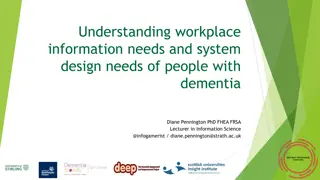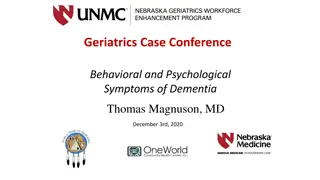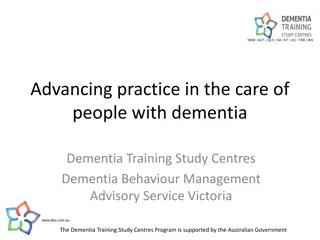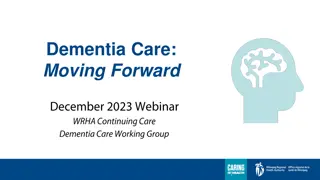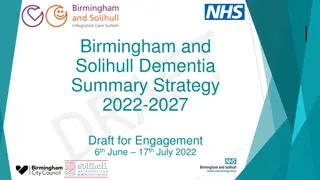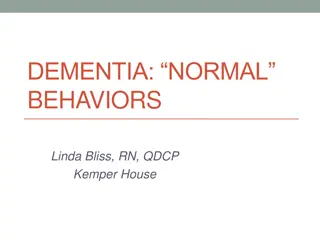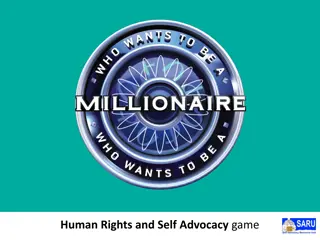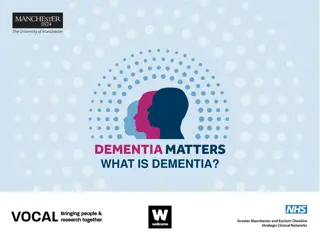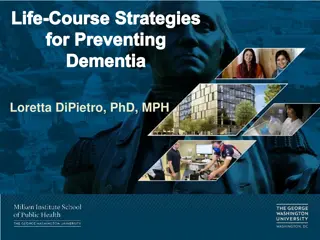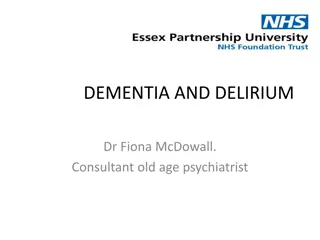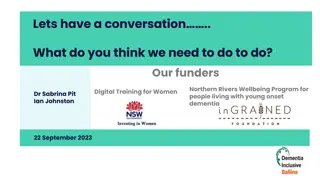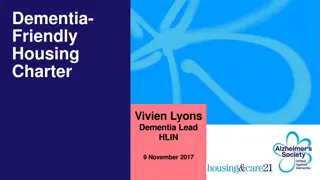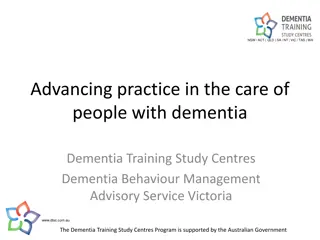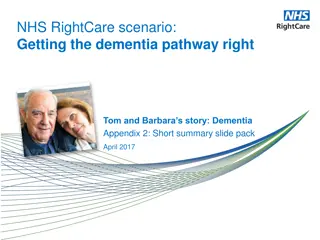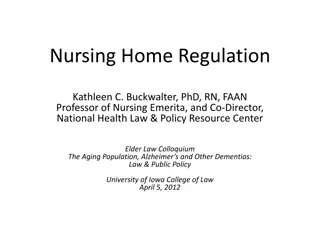Revolutionizing Dementia Care: A Journey of Personalization and Human Rights Advocacy
Explore the transformative evolution of dementia care through personalization and human rights advocacy, highlighting challenges, shifting cultural perceptions, and promoting inclusion and dignity. Discover the pivotal role of the Universal Declaration of Human Rights in fostering a new vision for individuals with dementia.
Download Presentation

Please find below an Image/Link to download the presentation.
The content on the website is provided AS IS for your information and personal use only. It may not be sold, licensed, or shared on other websites without obtaining consent from the author. Download presentation by click this link. If you encounter any issues during the download, it is possible that the publisher has removed the file from their server.
E N D
Presentation Transcript
Henry Simmons Chief Executive Alzheimer Scotland
Outline of presentation Explore the evolution of personalisation and dementia care Look back to 2008 and highlighting key challenges at that time Consider the approach and strategies we adopted to shift this culture Look at where we are in 2013 Consider some issues for workshops
Background People with dementia and their families not part of SDS or personalisation agenda Stigma and negative attitudes Myth that nothing can be done about dementia Myth over capacity and choice Denial of basic human rights Not on Alzheimer Scotland agenda
Need for a new vision and a new conceptual construct of dementia From this To this Nothing you can do Lacks capacity In a care home Dependant Burden Pressure Citizen Active Included Self manager Natural supports Ability to plan Means to be included
Form follows Function Building a new vision Personalisation Individuality Choice Power Control Self determination Capacity Value Citizenship Inclusion BASW Basic values Human dignity and worth Social Justice Service to humanity Integrity Competence
Universal Declaration of Human Rights (1948) States human rights are based on a recognition of the inherent dignity and of the equal and inalienable rights of all members of the human family and [a]ll human beings are born free and equal in dignity and rights .
Human Rights- a legal basis to personalisation? The European Convention on Human Rights (ECHR), incorporated into domestic law through the Human Rights Act (1998), and the Scotland Act (1998) The right to take part The right to a personal life The right to live independently and be included No exceptions
Personalisation/SDS is the form for delivering a human rights approach Function and vision Form Ensure that the human rights of people with dementia and their families are met within both their community and support arrangements Introduction of person centred care Develops into personalisation Leads to legislation and implementation SDS
Building the vision- internal and external Appointed Director of Personalisation Developed internal strategic objective to share a new vision around personalisation With CPG developed a Charter of Rights and Human Rights based approach Developed a PDS pilot using person centred planning basis Produced research report Let s get Personal Developed SG funded pilot in Ayrshire Worked closely with SG to get Dementia on the agenda
Gathering momentum Internally every service has a personalisation strategy Charter of rights informs National Dementia Strategy New standards and skills framework underpinned by human rights PDS pilot evidences value of person centred approach Ayrshire pilot evidences effectiveness and demand for SDS SG increase investment in and place high priority on dementia
Our SDS infrastructure Advisors in 1. National role- Yvonne Stewart 2. Glasgow 3. Ayrshire and Dumfries 4. Renfrewshire and East Renfrewshire 5. Perth and Dundee 90% of staff trained in personalisation Every service has local plan in place ( still a way to go)
Where are we now in 2013? Dementia is embedded in SDS strategy and thinking Core partnership with the SG and bill team Increased take up by around 150% Now 244 people with dementia using SDS We have a firm human rights focus leading all policy Dementia has not been left out but we have so much still to do.
Some thoughts for the workshops? What are the current values and vision of health and social care? Do you think we are following a form always follows function process with regards the integration agenda? Do you agree that personalisation /SDS is the manifestation of human rights in a care system? Should a Human Rights Approach be the vision for an integrated system?
